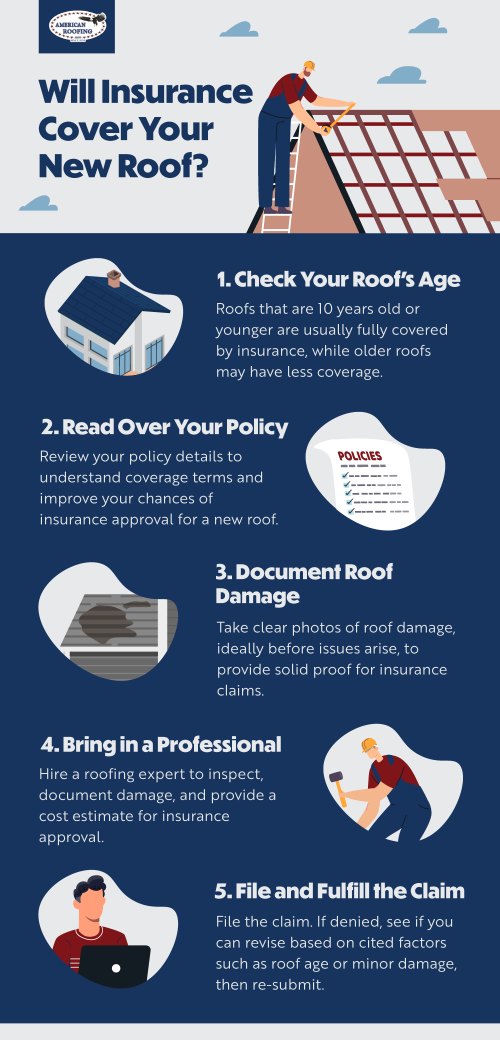
If it’s time for a new roof, you may be cringing at the thought of receiving the bill that might come along with it. Replacing a roof can be expensive, but it’s certainly not something you want to skimp on or neglect altogether. In Salt Lake City and throughout Utah, your roof makes your home more energy-efficient and is key in protecting your home from rain, snow, wind, falling debris, and more.
Fortunately, if you’re wondering how to pay for a new roof or install a ridge vent in Utah, you’ll be glad to hear that sometimes insurance will give you much-needed relief and cover the cost of roof replacement.
But when will insurance pay for a new roof? And how do you go about getting that kind of coverage? Check out our guide below for answers to all of your insurance and roof replacement questions.
When Will Insurance Pay For a New Roof in Utah?
Your home is an incredibly important asset, but it’s also so much more. When your house, and the roof especially, gets damaged by an accident or extreme weather, it’s important to know your next steps and preventative solutions to protect your valuables.
According to the Utah Insurance Department, you should take photos of the damaged parts before performing the bare minimum repairs or calling a professional to do them for you. Be sure to keep all of your receipts. Then, you should report your claim to see what your insurance says. Your insurance does not cover interior water damage from a storm if there is no damage to your roof or walls, so this documentation is vital.
Every insurance company is a little different, but most homeowners insurance policies will pay for a new roof in a few circumstances, including:
- If roof damage was caused by nature
- If roof damage was an accidental event
- If the roof is less than 20 years old
Examples that might fall into these circumstances include:
- A tree falls onto your roof during a hurricane and creates a hole.
- Your newer roof suddenly crashes in during a storm.
Disqualifications From Roof Coverage
Because most roofs have to be replaced every couple of decades, insurance will not cover the slow and natural wear and tear of the roof. So if a roof is more than 20 years old, you may not have any roof coverage at all. If anything, your insurance may cover the roof’s current cash value but will not cover the cost of replacement.
Sometimes you might decide to replace your roof because of minor problems, like missing shingles or leaks. In this case, the insurance company may claim the issue is cosmetic or an issue of general wear-and-tear. (Even if the harm was done by nature.) For example, if your roof starts leaking after a rainstorm, your insurance company may claim that your roof is simply getting old.
What Is the Difference Between a Re-Roof and a New Roof?
Before you dive too far into the process of getting a new roof, it’s important to know the difference between re-roofing and total roof replacement.
Re-Roofing
Re-roofing refers to the process of installing new shingles on top of existing ones. Sometimes contractors re-roof a house to take care of smaller issues like water damage or missing shingles. This process can only be done one time, and it isn’t always an option if there is a major issue (like rotting). It’s best if done to the entire roof—not just a small section.
Roof Replacement
Roof replacement is reserved for larger roofing issues, like structural problems with the roof deck. Though this process is more expensive than re-roofing, it is the only way to repair a roof with several big problems. It’s a long-lasting fix that will improve your roof’s performance for at least a couple of decades.
How to Find Out if Insurance Will Cover Your New Roof
You know the general guidelines for when insurance will cover roof repair, but, of course, you can only get the final answer from your insurance company. So how do you find out if insurance will cover your new roof? Here are the most common steps in the new roof insurance process:
1. Check Your Roof’s Age
It’s okay if you don’t know your roof’s age offhand—most homeowners don’t. If you aren’t the home’s original owner, do some digging into your paperwork and find out how old your roof is. Roofs that are 10 years old or younger are usually fully covered by insurance, while older roofs get less coverage as they age.
2. Read Over Your Policy
You’ll be better equipped to talk to your insurance company if you read your policy’s details first. Even if you read your policy when you first bought it, you’ll likely need a refresher. Knowing the terms will give you a greater chance of getting insurance to cover your new roof.
3. Document Roof Damage
Every insurance company requires adequate proof before they fork over any cash to cover roof replacement. And the best proof comes in the form of a photo. So if you’re looking to get insurance to cover the cost of a new roof, have a professional go up there and take some pictures. Better yet, take photos before you have any damage so that you have an obvious comparison.
4. Bring in a Professional
Insurance companies are far more likely to cover the cost of roof replacement if you have the word of a professional roofing contractor. Hire a trusted roofing company to:
- Do a roof inspection
- Document the damage
- Provide an estimate on the cost of roof replacement
5. File and Fulfill the Claim
Once you’ve completed all the other steps, it’s time to file your claim and wait for answers from the insurance company. If they reject the claim, you may be able to make some tweaks and try again. And if they approve the claim? Then it’s time to get that roof replaced!
Will Insurance Cover Your New Roof?
If you need a new roof, contact American Roofing Company. As one of Salt Lake City’s most experienced and reliable roofing companies, we’re seasoned in talking to insurance companies about roof replacement. We handle both commercial roof and residential roof repair and replacement. We can replace apartment and condo roofs, too. Get in touch today and we’ll come out to inspect your roof.

